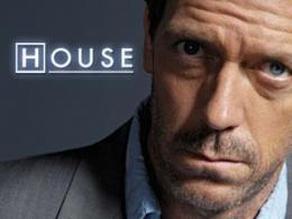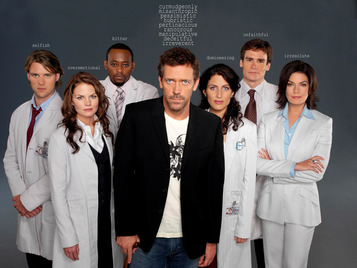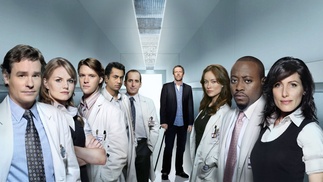
Whilst it seems unlikely that a television series featuring a misanthropic diagnostician could ever be successful, or at the very least endearing; medical drama House managed to infect its way into viewers and critic’s hearts (and other bodily organs). With its original run from November 2004 to May 2012, and comprising of eight seasons, House attracted a wide audience following and managed to secure places on numerous critics list, as well as prestigious awards. And who was the title character of this monumental series, you ask? Well, instead of audiences getting the usual boyish young charmer, who manages to save everyone whilst keeping his coiffed locks in a state of perpetual perfection; viewers were introduced to Dr. Gregory House (played by Hugh Laurie). In hobbles the ‘good doctor’ who is abrasive, rude, and sarcastic – and a complete medical genius. Solving the literally unsolvable, House and his team at Princeton Plainsboro Teaching Hospital clashed horns regularly with patients, colleagues, the law and every single clinic patient known to man.

Throughout its eight plucky seasons, the cast of House changed frequently, with the departure, and inevitable arrival, of new and old characters. One of the ever-changing aspects of House was the title doctor’s team; originally starring Jennifer Morrison as Dr. Allison Cameron, an honest and sincere Immunologist, Jesse Spencer as Dr. Robert Chase, a Surgeon and a bit of a ladies’ man, and Omar Epps as Dr. Eric Foreman, a Neurologist, who shares many personality traits with House himself. This quickly changed, as the ‘original’ team departed at the end of season three, only to return and then for some members to depart in Season six. The character development throughout the series has been substantial, and has allowed House to become more than just another medical drama. The psychological and physiological events that occur throughout the seasons (in particular to House himself, to Lisa Edelstein’s Dr. Lisa Cuddy and to Robert Sean Leonard’s Dr. James Wilson) adds incredible depth and makes House incredibly satisfying as a TV art form. British actor Laurie’s portrayal of the American apathetic Doctor is astounding (not least for the pretty spot on accent) as his character delves into the world of drug addiction, prison and psychiatric detention centres (and of course, the dreaded clinic!).

One of the most admirable aspects of House was its dedication to the facts, and to bringing to air some of the more disturbing and disastrous aspects of life – disease, death, lying and grief. Wilson’s girlfriend Amber’s death was a shocking and poignant moment of Season four, highlighting the loss of a loved one, whilst Thirteen’s struggle with her Huntingdon’s disease was a gripping twist, which also promoted awareness of the disease and the effects it can have on an individual’s outlook on life. So whilst the show may have ended in 2012, it certainly gave television audiences something tangible to remember, and set the bar for medical dramas for years to come.

 RSS Feed
RSS Feed
